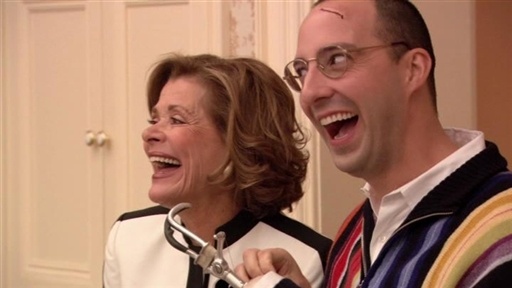The Aughts - Desomethinged, Defrosted

I am a sucker for decadism - the habit of arbitrarily assigning a certain personality to each decade after it has passed. The top ten lists, the gadgetry, the horrible fads and fashion trends that supposedly make the Seventies the Seventies or the Eighties the Eighties. I have often tried to figure out what would define the decades I've lived through as they were happening, to try to discern what the trends and tendencies of the time were, trying to size up the zeitgeist.
This is a risky business. In 1995 a magazine had a contest for its readers to define what the Nineties were all about, and the winner came up with "the Whiny Nineties." The memory of grunge and the recession and Thirtysomething was still painfully fresh, I guess. But then everyone took Prozac and got into ska and stock options and things were fine.
To a certain extent, the cultural cues of the 2000s haven't been hard to find. The iPod. Texting. Crocs. Trucker hats and ridiculous sunglasses. There's the embarrassing bric-a-brac of material culture. But was it a conservative era? The Republicans had an almost unprecedented lock on the White House, judiciary, and Congress for a significant part of the decade, and for a time the evangelical political movement seemed unstoppable. Fey, flimsy liberals looked helpless in the face of tax cuts, militarism, and (so-called) family values.
Despite the iron political orthodoxy that seemed to govern the country from 2000 to 2006, the culture as a whole did not feel stiff and conservative to me. If anything, people seemed to be growing more open-minded about sexuality, race, technology, and the wider world. (This is coming from someone who attended college, from 1999 to 2003, at a school where the Campus Crusade for Christ and the College Republicans were far and away the most dominant forces.) It still seemed to me that a greater openness was bubbling up in the submerged territory of the cultural unconscious. The anti-Muslim hatred that flared after 9/11, and which reappeared with the rise of Barack Obama, would certainly suggest otherwise. As would the passage of so many anti-gay referenda around the country, from Ohio to California to Maine. I still feel like these attempts to inscribe homophobia into the law are the last-ditch efforts of an aging, shrinking contingent of traditionalists, and the passage of time is their greatest enemy.
It is often said that seemingly conservative eras were less conservative than they seemed, and the same for the great periods of liberalism. The people who set the New Deal in motion were there all the while in the 1920s, before they got to take their ideas into the mainstream. The 1950s gave you the Beats, rock and roll, and the rise of the modern civil rights movement, while the supposedly radical 1960s might be best known for giving the world Richard Nixon and Ronald Reagan. Liberalism made an unexpected comeback in the late 2000s, after having been pronounced dead and useless over and over again in the 1990s. The sprouts of this seemingly sudden shift were growing in the shadow of the conservative juggernaut all along.
We went from the dread and despair of watching a demagogic cult drag the country into invading Iraq, cheered on by the opportunists in the press despite a total lack of evidence of any security threat, to the euphoria of electing an optimistic leader who hailed from the Left, who was lifted to the heights of power by the youth, the unions, the netroots. One day, capitalism was flawless and Alan Greenspan was a minor deity; and the next thing you know we are fearing for the survival of the world financial system and pointing fingers at the free-market gurus who deregulated us nearly into oblivion.
I don't know how you characterize a decade like this. We may yet lurch back into fear and demagoguery for all I know. This long strange period, without a music to define it (reggaeton? Autotune?), or a politics to unify it, is very nearly over. TV got a hell of a lot better, in my opinion, and this despite the curious pop-sociological plague known as reality shows. The Dow is about where it was ten years ago, as if the financial whirring of the whole decade never happened. Perhaps today's young people -- I'd still include myself in that group, as a newly minted graduate and a hopeless job-seeker -- will be so spooked by the catastrophic economy that they will, like the Silent Generation of the early 1950s, seek the security and comfort of a quiet, conformist life, clinging to any sort of stable job. Perhaps the culture will continue to fracture along microtargeted lines, and we will have no shared experiences except for watching a cat flush a toilet.
Despite the inherent diversity of any culture, and the artificial limits of the decade as a unit of time, each period gets characterized in one way or another. The 1990s, more for the go-go capitalist optimism of its later years than for the gloomy counterculture of its early years. From today's vantage point it is hard to tell whether we are leaving the age of George Bush or George Michael Bluth. But you can't blame Newsweek for trying:
Top 10 Most Memorable Quotes